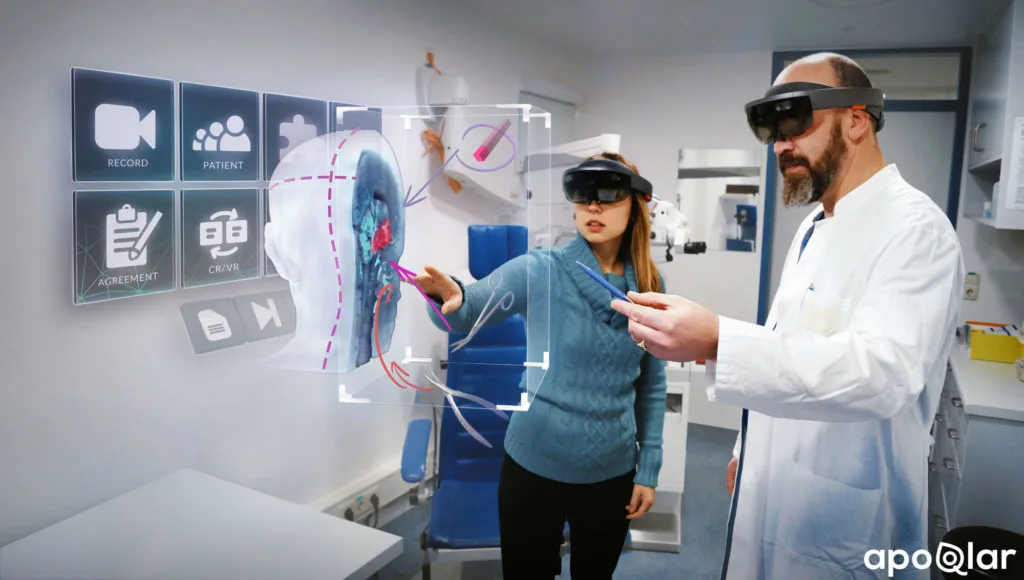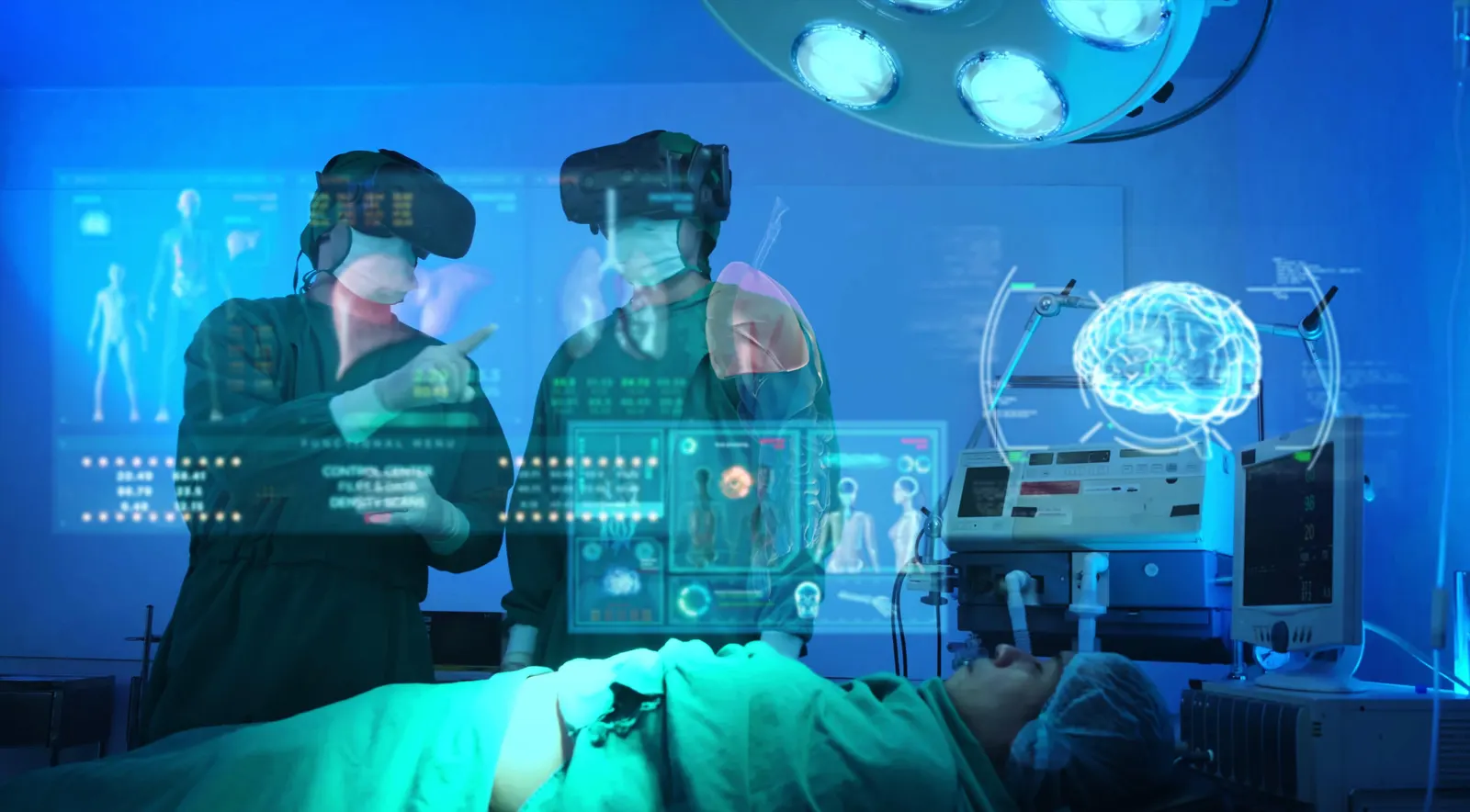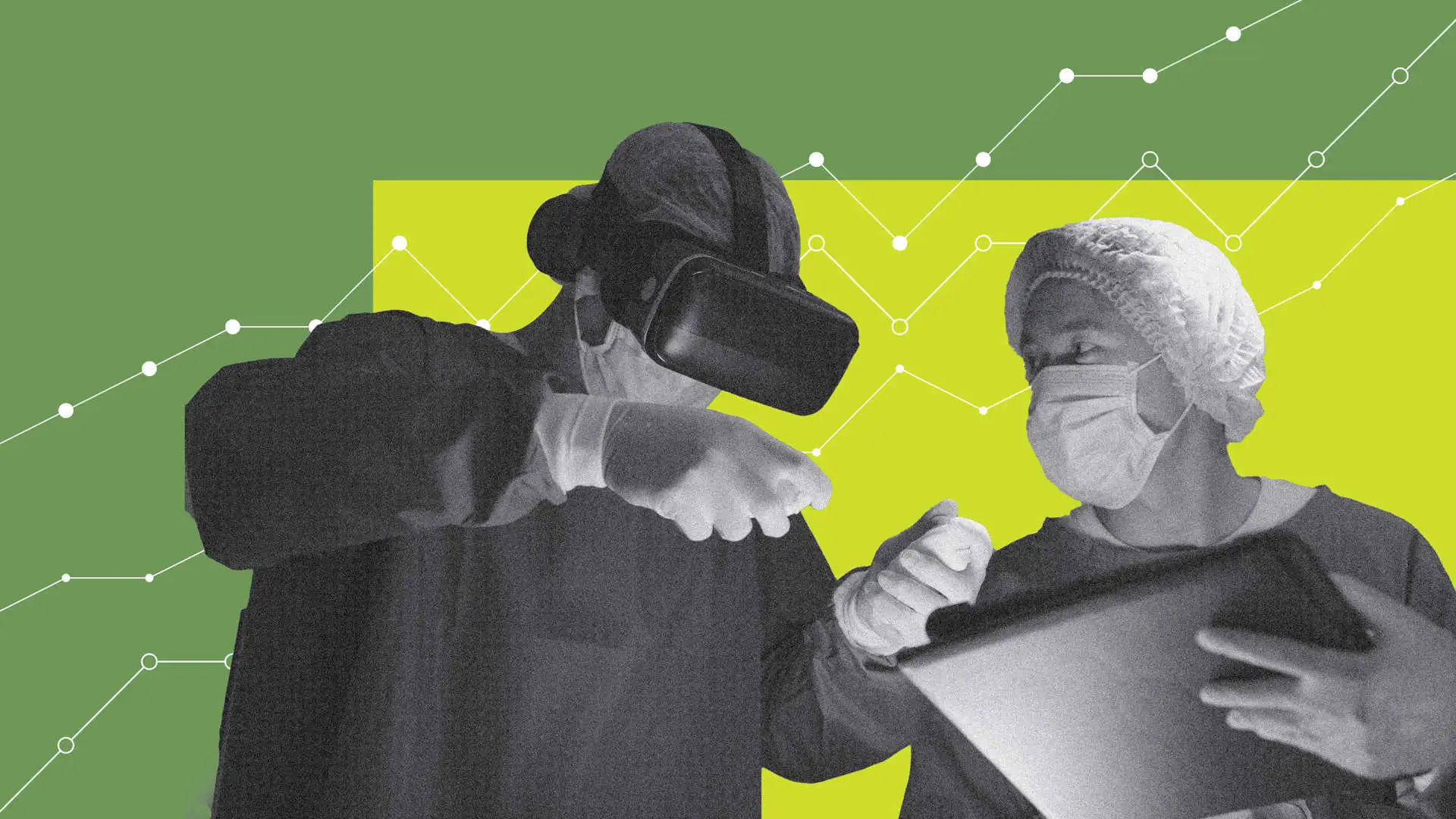
Technology is leading to medical advancements. The introduction of virtual reality (VR) has been a game-changer, especially in the surgical field. apoQlar’s innovative solution, a state-of-the-art Virtual Surgery Intelligence (VSI) system, stands at the forefront of this revolution, heralding a new era of precision, efficiency, and safety in surgical procedures.
This blog explores how apoQlar’s cutting-edge technology is shaping the future of virtual surgery, offering a glimpse into a world where the boundaries of medical training and operation techniques are expansively redefined.
Bridging the Gap Between Traditional and Virtual Surgery

The apoQlar’s VSI technology leverages the power of virtual reality to transform the way surgeons prepare, plan, and perform surgeries. By creating a highly detailed, three-dimensional virtual model of the patient’s anatomy, surgeons can now explore, practice, and execute surgical procedures in a risk-free, virtual environment. This not only enhances the surgeon’s understanding and familiarity with the specific surgical challenges they might face but also significantly improves precision and patient outcomes.
Enhancing Surgical Training and Education
One of the most significant impacts of apoQlar’s solution is on the education and training of future surgeons. Traditionally, surgical training has relied heavily on textbooks, videos, and limited hands-on experience. However, with VSI, trainees can immerse themselves in a virtual operating room, gaining invaluable practical experience without the constraints of time, physical space, or the availability of real patients. This immersive learning environment accelerates the learning curve, allowing trainees to practice complex procedures and hone their technical skills in a way that was previously unimaginable.
Improving Patient Outcomes and Safety

At the heart of apoQlar’s virtual surgery solution is the commitment to improving patient care. By allowing surgeons to meticulously plan and simulate surgeries ahead of time, the technology minimizes unforeseen complications during the actual procedure. This pre-operative planning ensures that surgeries are not only safer but also more efficient, reducing operation times and speeding up patient recovery. Additionally, the use of Virtual Reality in patient education enables individuals to understand their surgeries better, fostering a collaborative doctor-patient relationship.
The Expanding Applications of Virtual Surgery
While apoQlar’s solution is already transforming surgical practices, the potential applications of virtual surgery are vast and varied. Beyond pre-operative planning and training, VR technology is paving the way for remote surgical consultation and real-time collaboration among surgeons worldwide. In the not-so-distant future, we may see the advent of VR-assisted robotic surgery, where surgeons can perform procedures remotely with unparalleled precision.
 Orthospinenews has presented graphical data indicating that the surgical robot market is forecasted to grow by USD 7,892.61 million between 2022 and 2027.
Orthospinenews has presented graphical data indicating that the surgical robot market is forecasted to grow by USD 7,892.61 million between 2022 and 2027.
Conclusion
The apoQlar’s innovative Virtual Surgery Intelligence system is not just a technological marvel; it’s a testament to the boundless possibilities when technology and healthcare converge. As we stand on the brink of a new era in surgical practice, apoQlar’s solution exemplifies how virtual reality can transcend traditional boundaries, enhancing surgical training, improving patient outcomes, and ultimately, revolutionizing the field of medicine. The future of virtual surgery is here, and it’s brighter than ever, thanks to apoQlar’s pioneering vision and technology.
Moonpreneur is on a mission to disrupt traditional education and future-proof the next generation with holistic learning solutions. Its Innovator Program is building tomorrow’s workforce by training students in AI/ML, Robotics, Coding, IoT, and Apps, enabling entrepreneurship through experiential learning.



























